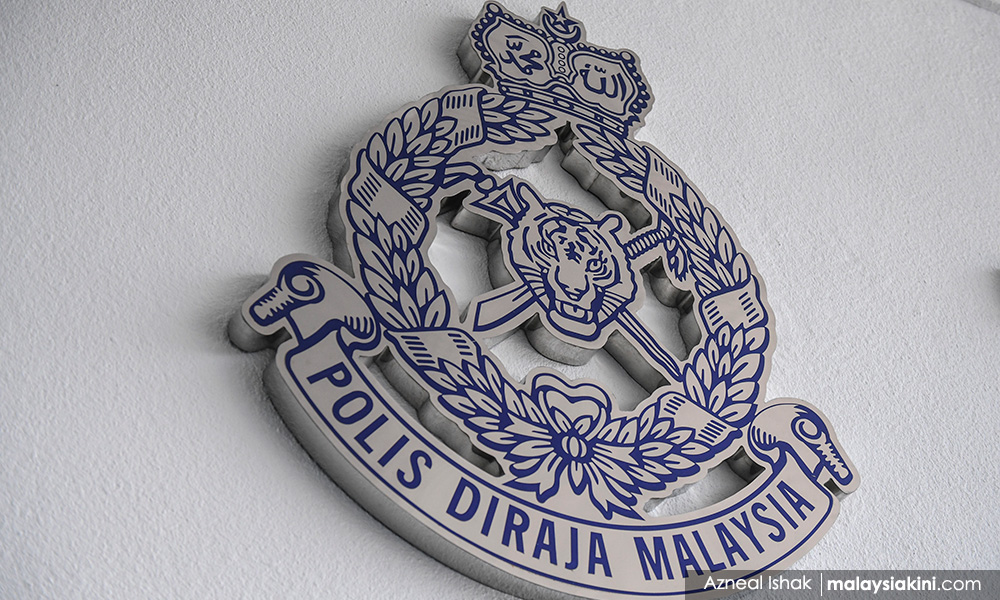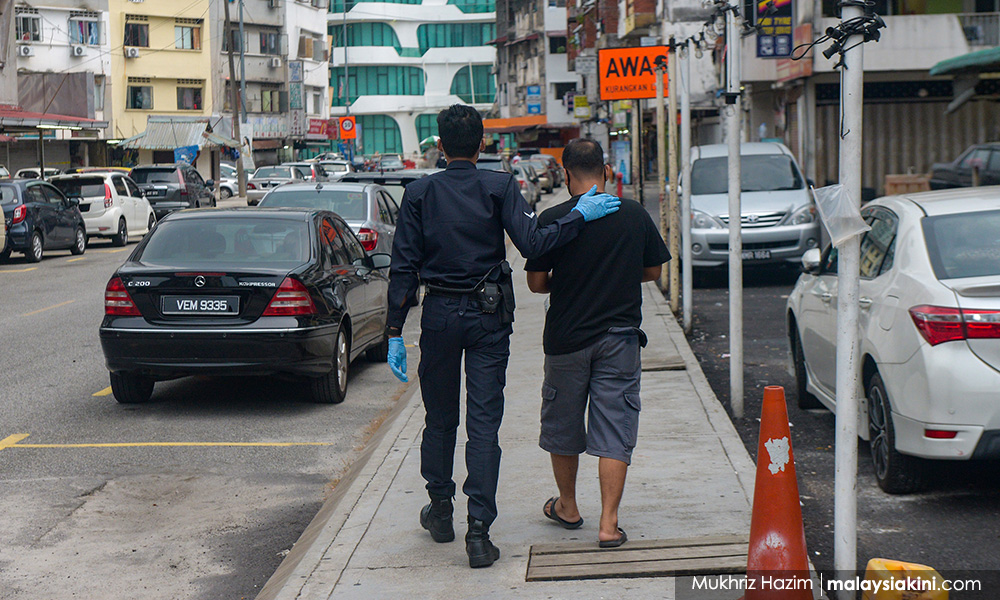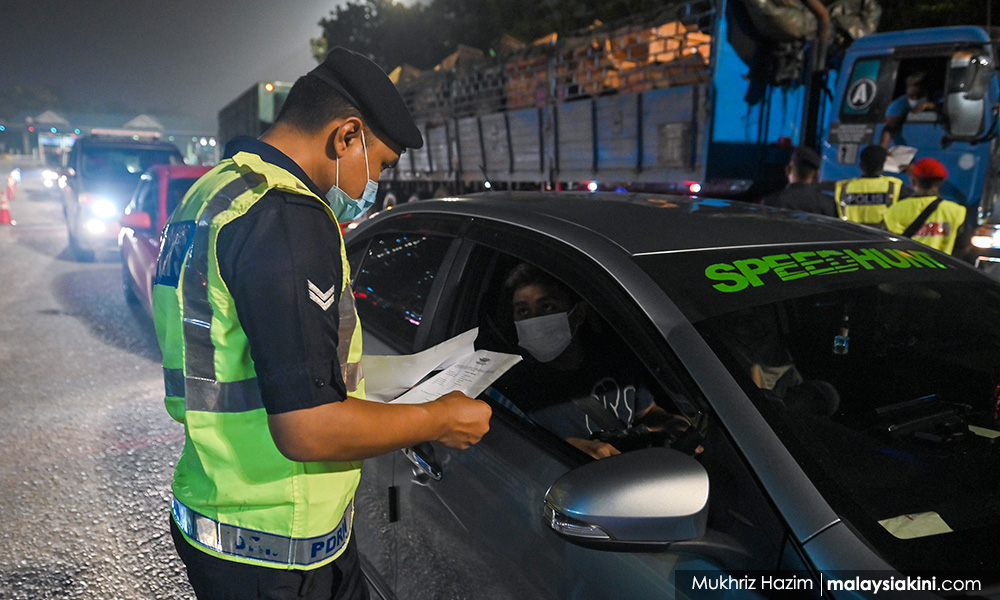“I always thought,' I said, 'that a man became a cop to be shielded from his own criminality.”
- Novelist, Norman Mailer
When it comes to raids, it is not as if the police do not want publicity. They just do not want evidence of their actions.
This is why, in this age of handphones and instant communication, they are deathly afraid of the possibility that their actions during a raid would be open to scrutiny.
The last thing a state security apparatus wants in any form of democracy is scrutiny, especially from the public.
This is why the police have fought tooth and nail against any kind of sustained, transparent oversight. The propagandistic nature of the police in mainstream popular (Malay) culture is also how the state enforces certain narratives.
Recordings of police raids, or any kind of recordings between the public and police, dispel many elements of the mythology that the state and its security apparatus have always cultivated.
The key can be discovered in the case of the woman who was denied entry into a police station because she was not properly attired.
From reportage - she told a news portal that she had asked for the badge number of the police personnel who denied her entry because she wanted to lodge a complaint, but he refused to give it to her.
The personnel in question did not want to be identified. In fact, according to Kajang District police chief Mohd Zaid Hassan, "The woman was unhappy and initially refused to follow instructions and provoked the personnel on duty”.

This is also another issue when it comes to the state security apparatus. The public, and in this case, the woman wanting to lodge an accident report, provoked the personnel on duty.
"The personnel once again courteously advised her to change into more suitable pants if she wanted to have dealings at a police station," - read this line carefully.
First, dealings at the police station are not some sort of convivial meet-up. There are legal requirements that have to be fulfilled and, in this case, the police were obstructing the woman from carrying out her legal obligations.
Second, what we are dealing with here is a personnel, who purposely chose to withhold his identification, which merely means that this individual knew he was doing something wrong. The fact that he has the backing of his superiors is irrelevant.
And this is why cops do not like to be filmed - unless they are doing a perp walk and establishing with these recordings that they are doing their job.
Here is the thing. When the police are afraid that their actions could be construed as wrong, they claimed they were provoked. The top brass of the police does not want the public recording their actions because this could provoke a negative impression on them, especially if the said actions resulted in public ire.
Several inspector-generals of police over the years have said this. This is not something new. What is new is the way how information is disseminated and the viral manner in which narratives are formed.
Police raids are about propaganda. The police have no issue with state-sanctioned media filming them and sometimes this also includes the alternative press.

They want people to be aware that they are cracking down on antisocial behaviour. They want people to be aware that the state discourages or bans certain forms of behaviour and they want to make sure that this message goes through loud and clear.
When it comes to young Malays, it gets worse. Whatever form of behaviour deviates from the state-sanctioned racial and religious narratives, is dealt with harshly and even more importantly, publicly.
The mainstream Malay papers and social media are flooded with images of young people in handcuffs escorted away by the honourable state security apparatus, with the subtext that this is all for their own good.
Nexus between police and political establishment
Furthermore, because the mainstream Malay political apparatus is the way it is, nobody really questions the methods or agenda of the state security apparatus when it comes to these issues.
Who needs oversight when the narrative is that the police are dealing with the undesirables of society?
In fact, the police are merely following the diktats of their patrons from the political establishment when it comes to enforcing a specific culture and behaviour. And because everyone is afraid of “spooking the Malays”, nobody really wants to handle this issue.

The state security apparatus, specifically the police, do not want any kind of oversight.
Do not take my word for it. Just read the report on the special edition bulletin by Bukit Aman in 2006, which objected to the then-BN government’s proposal of an Independent Police Complaints and Misconduct Commission (IPCMC).
Here are a few important points:
The scope of 'misconduct' is too wide and will complicate the routine duty of the police.
It will “soften” the police because it creates a direct or indirect effect on the police, making them feel fear and not confident in carrying out their work.
"The explicit and implicit effect of the formation of IPCMC is that the real organ which exercises powers of control over the police will be IPCMC's commissioners and not the minister." Let the politicians be aware that they will eventually lose powers, control and influence over neutral, professional and people-centred police (as suggested by the royal police commission).
Lastly, the police threatened to vote for the opposition, which should tell us something about the relationship between the state security apparatus and the political establishment.
Back in the day, I was familiar with the tradecraft of the state security apparatus and how it dealt with threats.
There are some instances that demand, for lack of a better word, secrecy and the state has to carry out certain operations that, no matter what some progressives claim, are necessary for the safety of the many.
However, when it comes to the everyday dealings with the public that our cops are tasked to protect, the system has become so compromised, with accountability and transparency being almost non-existent.
The reason why the police do not want you to record them is that it would mean some small form of accountability is meted out to them.
We can't have this, can we? - Mkini
S THAYAPARAN is Commander (Rtd) of the Royal Malaysian Navy. Fīat jūstitia ruat cælum - “Let justice be done though the heavens fall.”
The views expressed here are those of the author/contributor and do not necessarily represent the views of MMKtT



No comments:
Post a Comment
Note: Only a member of this blog may post a comment.